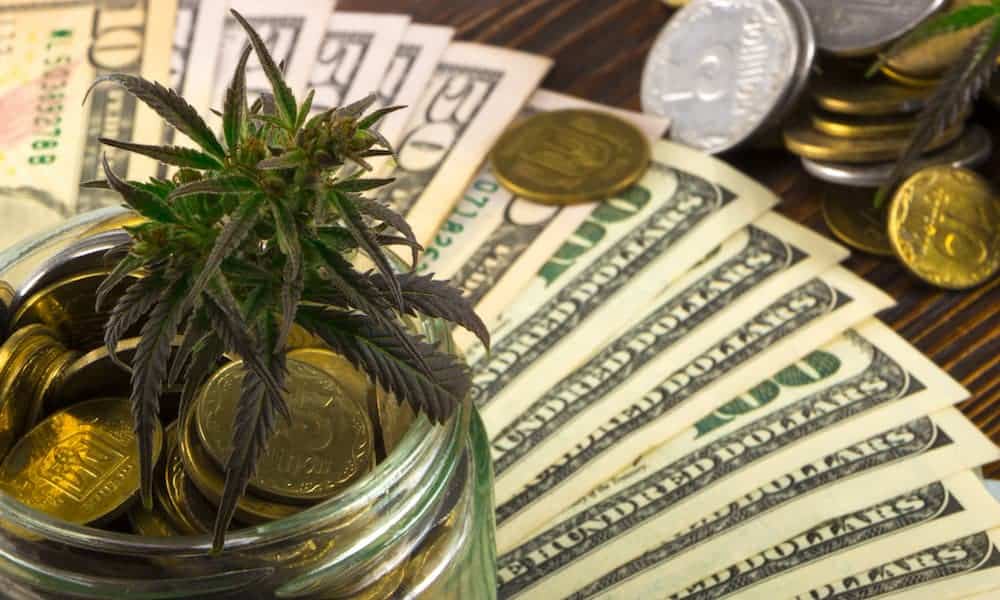Are Canadian Legalization Laws Too Strict?
Legalizing marijuana in Canada will benefit millions of people. First and foremost, people will no longer be incarcerated for minor possession charges. This means fewer arrest records, less government spending on prisons and less longterm impact on the careers and lives of those caught with marijuana. Legalization does, however, vary province by province, and come with a host of bureaucratic complications. Are Canadian legalization laws too strict? Here’s a closer look at the problems marijuana legislation, as it exists today, could cause.
Strict Laws Require Bigger Law Enforcement Budgets
Many provinces are planning on toughening up penalties for driving while high.
In Nova Scotia, the fine for being in a car while high ranges from $1,000 to $2,000. This applies to passengers as well as drivers. The proposed law would also include a one-year license suspension. If you’re caught driving while high a second time, you’re looking 30 days in jail, minimum, plus a longer license suspension.
There are a few problems with this sort of a crackdown on driving while high. First off, it will require extra policing, which will be costly. In Ontario, this means an extra $40 million dollars is going towards law enforcement. For many people, one of the benefits of legalized weed is more revenue for social programs. Legalizing a substance should mean less, rather than increased, police spending.
Testing for Driving While High Is Almost Impossible

More importantly, THC, which is the cannabinoid drug tests detect, can stay in your system long after it has stopped being psychoactive. Two days after a single instance of THC ingestion, your blood can test positive for the cannabinoid. With more frequent use, THC can stay in your bloodstream for weeks.
According to a former federal government employee who prefers to remain anonymous, “It’s difficult because they want to regulate it like they do with drinking and driving, but the technology and science just isn’t there.”
“What I would be worried about is that the devices aren’t advanced enough to detect who really is driving ‘high’ and that many people will be labeled as driving ‘high’ when really they are no longer intoxicated,” they add.
Though this employee supports the rationale behind province’s strict driving laws, one could worry that uncertain testing will lead to discretionary policing. Sam Hart, a student from Ontario explains, “It’s going to come down to the discretion of specific judges or cops. Whenever there are ambiguities in the law you get unequal enforcement, unequal judgment.”
Are Canadian legalization laws too strict? Your answer might come down to who pulled you over, or who sentenced you in court.
Some Places Might Ban Home-Grown Cannabis
Though the federal government allows everyone to grow up to four cannabis plants, some provinces want to set their own rules. In Quebec and Manitoba, this could mean banning all home-grown cannabis.
This week, Quebec lawmaker Minister Jean-Marc Fournier traveled to Ottowa in hopes of convincing federal authorities to change the law. Minister Fournier is petitioning to change federal legislation so it guarantees Quebec’s right to ban at home marijuana growth. Currently, federal laws could overrule a provincial ban. Most likely, cases of at home marijuana growth in Quebec and Manitoba would be settled in messy court cases.
This points to a larger problem in Canadian legalization laws: inconsistency between the provincial and federal levels. As Xavier Ménard, a law student at McGill Unversity explains, “People will not know what they should do unless they go to court. It’s going to be retroactive. I think we’re going to see injustice.”
Can You Share Your Weed? Maybe Not

In places where you can grow up to four marijuana plants, you still cannot, technically, sell your harvest. Can you give to your friend?
“This is one of those grey market areas, Hart explains, “suddenly a friend of a friend wants to buy weed…”
At some point, sharing with your friends become a cottage industry in violation of the law.
The Cannabis Act Affects Marijuana-Adjacent Industries
Additionally, many provinces will have a monopoly over marijuana sales. In places like Quebec, the state will control all liquor and marijuana sales through one administrative body. This could have serious legal ramifications for people sharing weed within their communities, and for natural remedy stores that might sell cannabinoid-infused products.
“Wellness stores still fall under the same jurisdiction as a weed store,” Hart says. This means that Canadian legalization laws could force legal, pre-existing businesses that are not dispensaries to close.
Additionally, the federal government will regulate what called ‘cannabis accessories.’ These are vaguely defined as anything used in the production or consumption of marijuana. At this point, anything you might need to ingest marijuana might be exclusively sold through a government-operated store in many provinces.
Distribution Restrictions Will Limit Access

Not only may certain places ban at home marijuana growing, but you may not have a lot of options in stores. Cannabis production will be federally regulated, but distributed provincially.
Canada is the second biggest country by land mass and has a wide range of cultural attitudes towards cannabis. Some places have been tolerating illegal dispensaries for years, while others strictly enforce marijuana laws. Should all marijuana production be federal, rather than catered to individual provincial needs?
But giving the provinces too much control over Canadian legalization laws is also controversial. Ménard, who also writes about legalization, takes Quebec as an example.
“We have 8 million people and they say that they’re only going to open 15 société québécoise du cannabis dispensaries,” Ménard says. “I don’t think the government has the expertise.”
Packaging Laws Will Prevent Consumers From Making Informed Decisions
Health Canada is making sure that marijuana packaging is more unappealing that even cigarette packets. As it stands now, marijuana products cannot feature logos, mascots or any type of colorful image. The objective of these restrictions is to limit cannabis’ appeal to children and teens.
But these limitations are so severe that they may stop consumers from accessing much-needed information. North American Affairs Manager at Consumer Choice Center David Clement told High Times, “A lot of people aren’t aware of which cannabis products have THC in them, or which helps you sleep. It would be prohibited to put the desired effects [on packaging].”
From a consumer safety standpoint, Mr. Clement adds, “We would love to have brands be able to say ‘this product will not get you high.’ ”
Not only are these restrictions potentially unsafe, but they’re also hypocritical. Alcohol has comparatively few limits on branding. All across Canada, liquor companies have funded venues like Budweiser Stage in Toronto.
Are Canadian Legalization Laws Too Strict?
Having any sort of national legalization framework is groundbreaking, especially when it allows you to grow your own weed (for the most part). This does not mean, however, that there aren’t vast areas of uncertainty, injustice and bureaucratic inefficiency in the law, only some of which is unavoidable.
Aside from inequality, whether in the case of provincial regulations or unequal driving enforcement, allowing the black market to thrive should be of concern to Canadian legislators. Plain packaging restrictions enable criminals hoping to pass off un-taxed and unregulated product. Limiting cannabis production and availability also encourages black market sales.
As the federal government has stated that its biggest concern is regulating a billion dollar black market, legislators should remember that strict laws encourage people to break them.
The post Are Canadian Legalization Laws Too Strict? appeared first on High Times.


